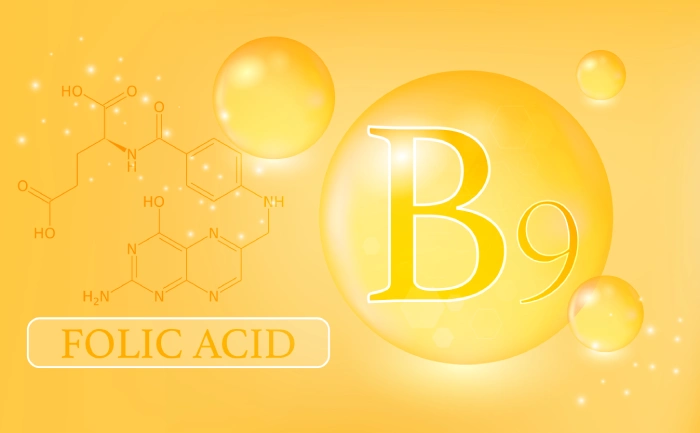Hey there, wellness warriors! Today I’m super excited to spill the tea about something that literally changed my life – methylfolate. And no, I’m not being dramatic (okay, maybe a little 😉). This isn’t just another supplement trend; it’s the real deal, and by the end of this article, you’ll understand why I’m so hyped about it. As someone who’s been researching and writing about nutritional supplements for over a decade, I can tell you that methylfolate stands out in a crowd of wellness trends like a lighthouse in the fog.
What is Methylfolate? Breaking Down the Basics
Imagine trying to unlock your phone with a key that doesn’t quite fit – frustrating, right? That’s basically what happens when your body gets regular folic acid instead of methylfolate. Methylfolate is like having the perfect key that slides right in and unlocks all your body’s essential functions without any hassle. It’s the active, ready-to-rock version of folate (Vitamin B9) that your body craves for literally hundreds of crucial processes.
The story of methylfolate is fascinating, and it starts deep within our cells. This powerful compound is what’s known as a methyl donor, which might sound like something out of a sci-fi movie, but it’s actually one of the most important biological processes in your body. Think of methyl groups as tiny molecular messengers, zipping around your body and helping regulate everything from your mood to your energy levels, and even how your genes express themselves. Pretty mind-blowing, right?
The Science Behind Methylfolate vs. Folic Acid: A Deep Dive
Let me break this down in a way that won’t make your head spin. Think of regular folic acid as a zip file your body needs to unpack before using – some bodies are great at this, while others struggle like trying to open a jar with wet hands. Methylfolate, on the other hand, comes pre-unpacked and ready to party.
The conversion process from folic acid to methylfolate in your body is like a complex assembly line, requiring multiple steps and specific enzymes. First, folic acid needs to be converted to dihydrofolate (DHF), then to tetrahydrofolate (THF), and finally to methyltetrahydrofolate (MTHF) – the active form your body can actually use. Each step requires specific enzymes, and if any part of this process is impaired (which is more common than you might think), you could end up with a backlog of unusable folic acid.
What makes this even more interesting is that this conversion process isn’t just a simple chemical reaction – it’s part of what scientists call the methylation cycle, a crucial biological process that affects everything from your DNA repair to your ability to detoxify harmful substances. When you take methylfolate, you’re essentially giving your body a head start by skipping these conversion steps entirely.
Why Your Body Prefers Methylfolate Over Folic Acid: The Cellular Story
Your body has a secret language, and methylfolate speaks it fluently. While your system can eventually figure out how to work with folic acid (think of it like using Google Translate), it naturally vibes with methylfolate right from the start. This is especially crucial because about 40% of us have genetic variations that make processing folic acid about as smooth as trying to parallel park in a snowstorm.
Let’s talk about these genetic variations for a moment, because this is where things get really interesting. The main player here is called the MTHFR gene (methylenetetrahydrofolate reductase, if you’re feeling fancy). This gene is like the conductor of your body’s folate orchestra, directing how efficiently your body converts folic acid into its usable form. When there’s a variation in this gene, which is surprisingly common, it’s like having a conductor who’s working with a broken baton – things just don’t flow as smoothly as they should.
The Amazing Benefits of Methylfolate: A Comprehensive Overview
Energy Production and Cellular Metabolism
Ever feel like you’re running on fumes by 3 PM, reaching for your third (or fourth, no judgment) cup of coffee? Methylfolate might be the energy upgrade you’ve been dreaming of. At the cellular level, it’s like having thousands of tiny power plants working overtime to keep your energy flowing smooth and steady.
The way methylfolate supports energy production is fascinating and complex. It plays a crucial role in what’s called the one-carbon metabolism pathway, which sounds complicated but is essentially your body’s energy production highway system. This pathway is responsible for creating and distributing energy throughout your cells, and methylfolate is like the premium fuel that keeps everything running at peak efficiency.
What’s particularly interesting is how methylfolate interacts with other B vitamins, especially B12, to create this energy-boosting effect. Together, they form a power couple that supports the production of red blood cells, which carry oxygen throughout your body. More efficient oxygen delivery means better energy production at the cellular level, which translates to you feeling more energized and focused throughout your day.
Mood Enhancement and Neurotransmitter Production
The relationship between methylfolate and your mental wellbeing is like a beautiful symphony where every note matters. As the master chef behind your brain’s feel-good chemicals, methylfolate plays a crucial role in producing neurotransmitters like serotonin, dopamine, and norepinephrine. These aren’t just fancy scientific terms – they’re the molecules that quite literally shape your emotional landscape.
Let’s break down how this works: Methylfolate provides the methyl groups necessary for creating these neurotransmitters. Without adequate methylfolate, it’s like trying to bake a cake without eggs – you might have all the other ingredients, but something essential is missing. This is why proper methylfolate levels are so crucial for maintaining stable mood patterns and mental clarity.
Research has shown that people with depression often have lower levels of folate in their blood, and supplementing with methylfolate has shown promising results in supporting mental health treatment. It’s like giving your brain the tools it needs to maintain emotional balance and resilience.
Pregnancy and Fetal Development: A Critical Window of Opportunity
For all the mama bears out there (or soon-to-be mamas), this is where methylfolate really shines like a diamond. During pregnancy, methylfolate isn’t just another supplement – it’s more like your baby’s personal construction supervisor, making sure everything gets built perfectly from the ground up.
The role of methylfolate in pregnancy is so crucial that it deserves special attention. During early pregnancy, proper methylfolate levels are essential for preventing neural tube defects, which are serious birth defects affecting the brain and spine. But it doesn’t stop there – methylfolate continues to support your baby’s development throughout pregnancy, influencing everything from cellular division to proper gene expression.
What’s particularly fascinating is how methylfolate supports something called epigenetic programming during pregnancy. This process is like setting up your baby’s genetic software – it determines which genes get activated and which stay dormant. Proper methylfolate levels help ensure this programming goes smoothly, potentially influencing your child’s health for years to come.
Cardiovascular Health: The Methylfolate Connection
Your heart will seriously thank you for choosing methylfolate. Think of it as your cardiovascular system’s personal maintenance crew, working 24/7 to keep things running smoothly. One of the most important ways methylfolate supports heart health is by helping regulate homocysteine levels in your blood.
Homocysteine is like the troublemaker of the cardiovascular world – when levels get too high, it can damage your blood vessels and increase your risk of heart problems. Methylfolate helps keep homocysteine in check through a process called remethylation, essentially converting this potentially harmful compound into something your body can actually use.
But the cardiovascular benefits don’t stop there. Methylfolate also supports the production of nitric oxide, a molecule that helps your blood vessels relax and maintain proper blood flow. It’s like having a traffic controller for your circulatory system, helping ensure smooth flow and preventing congestion.

Understanding Methylfolate Dosage: A Personalized Approach
Finding your perfect methylfolate dosage is like finding the right temperature for your shower – it’s personal, and it might take some adjusting to get it just right. While most adults do well with 400-1000 mcg daily, your ideal dose depends on several factors that we need to explore in detail.
Factors Affecting Your Methylfolate Needs
Your methylfolate requirements can be influenced by various factors, including your genetic makeup, current health status, lifestyle, and even your stress levels. For instance, if you have the MTHFR gene variation, you might need higher doses to compensate for reduced enzyme activity. Similarly, periods of high stress or intense physical activity can increase your body’s demand for methylfolate.
Age also plays a crucial role in determining your methylfolate needs. As we get older, our ability to absorb and utilize nutrients generally decreases, which might mean adjusting your intake accordingly. Additionally, certain medications can interact with folate metabolism, potentially affecting how much methylfolate your body needs.
Timing and Absorption: Maximizing Benefits
The time of day you take methylfolate can significantly impact its effectiveness. Morning doses often work best for most people, as this aligns with your body’s natural biological rhythms. However, some people prefer splitting their dose throughout the day to maintain steady levels.
What’s particularly interesting is how methylfolate absorption can be influenced by other nutrients. For example, taking methylfolate alongside vitamin B12 can enhance its effectiveness, as these nutrients work synergistically in many biological processes. On the other hand, certain minerals might compete for absorption, so timing your supplements thoughtfully can make a big difference.
The Methylfolate Experience: What to Expect on Your Journey
Starting methylfolate is like introducing your body to a new best friend – sometimes there’s an adjustment period. Understanding what to expect can help you navigate this journey more smoothly and recognize both the benefits and any potential adjustment symptoms.
The Initial Adjustment Period
When you first start taking methylfolate, your body might go through a period of adaptation. Some people experience what’s called the “methylation start-up reaction,” which can include temporary changes in energy levels, mood, or sleep patterns. This isn’t necessarily a bad thing – it’s often a sign that your body’s methylation processes are beginning to work more efficiently.
These initial changes typically resolve within a few weeks as your body adjusts to improved methylation support. Think of it like starting a new exercise routine – there might be some temporary muscle soreness, but it’s part of getting stronger.
Long-term Benefits and Monitoring
Over time, consistent methylfolate supplementation can lead to significant improvements in various aspects of health. Many people report enhanced energy levels, better mood stability, improved cognitive function, and even better sleep quality. However, it’s important to monitor your response and adjust as needed.
Keep a journal of your experience, noting any changes in how you feel. This can be incredibly helpful in fine-tuning your supplementation strategy and identifying patterns in your response to methylfolate.
Methylfolate in Your Daily Life: Practical Integration Strategies
Success with methylfolate isn’t just about taking a supplement – it’s about creating a comprehensive approach to supporting your body’s methylation processes. This includes both dietary choices and lifestyle factors that can enhance or inhibit methylfolate’s effectiveness.
Dietary Synergy: Foods That Enhance Methylfolate Benefits
While supplemental methylfolate is important, supporting it with the right dietary choices can maximize its benefits. Dark leafy greens like spinach, kale, and collard greens are natural methylfolate powerhouses. Legumes, especially lentils and chickpeas, also provide significant amounts of folate in forms your body can use effectively.
What’s particularly interesting is how certain food combinations can enhance methylfolate absorption and utilization. For example, eating folate-rich foods alongside sources of vitamin B12 (like eggs or fish) can support optimal methylation processes. Adding foods rich in vitamin C can also enhance folate absorption.
Lifestyle Factors That Impact Methylfolate Effectiveness
Your lifestyle choices can significantly impact how well your body utilizes methylfolate. Regular exercise, for instance, can increase your body’s demand for methylfolate while also improving its utilization. Stress management is equally important, as chronic stress can deplete methylfolate reserves and impair methylation processes.
Sleep quality also plays a crucial role in methylation efficiency. During deep sleep, your body conducts many important repair and regeneration processes that rely on proper methylation. Creating a consistent sleep schedule and practicing good sleep hygiene can help optimize these processes.

Special Applications: Methylfolate for Specific Populations
Athletes and Active Individuals
For those leading an active lifestyle, methylfolate takes on special significance. During intense physical activity, your body’s demand for methylfolate increases significantly. This is because exercise increases the rate of cell division and repair, processes that heavily rely on proper methylation.
Athletes might benefit from slightly higher methylfolate intake, especially during training periods. The increased need comes from both the physical demands of training and the body’s enhanced recovery requirements. However, this should always be balanced with proper monitoring and professional guidance.
Aging Population and Cognitive Health
As we age, our ability to absorb and utilize nutrients often decreases, making methylfolate supplementation potentially more crucial. Research suggests that maintaining optimal methylfolate levels might help support cognitive function and emotional well-being in older adults.
The relationship between methylfolate and cognitive health is particularly interesting. Some studies suggest that proper methylation support might help maintain memory function and cognitive clarity as we age. This has led to increased interest in methylfolate’s potential role in supporting brain health during aging.
Pregnancy Planning and Maternal Health
For women planning pregnancy or currently pregnant, methylfolate takes on critical importance. The demands for folate increase significantly during pregnancy, and having optimal levels before conception is crucial for proper fetal development.
What’s fascinating is how maternal methylfolate status can influence not just immediate fetal development, but potentially the long-term health of the child through epigenetic mechanisms. This understanding has led to increased emphasis on proper methylfolate supplementation before and during pregnancy.
Looking to the Future: Current Research and Emerging Applications
The field of methylfolate research is constantly evolving, with new discoveries being made about its potential applications. Current research is exploring its role in everything from mood disorders to cardiovascular health, and the findings are promising.
Emerging Research Areas
Scientists are particularly interested in methylfolate’s potential role in:
- Supporting cognitive function and mental health
- Enhancing athletic performance and recovery
- Promoting healthy aging and longevity
- Supporting cardiovascular health
- Influencing genetic expression through epigenetic mechanisms
Future Directions and Possibilities
As our understanding of methylation processes grows, we’re likely to discover even more applications for methylfolate supplementation. The intersection of genetics, nutrition, and health is an exciting frontier, and methylfolate stands at the center of many promising developments.
Conclusion: Your Personal Methylfolate Journey
Remember, starting methylfolate is like beginning any new health practice – it’s personal, and your experience might be different from someone else’s. Pay attention to how your body responds, keep track of any changes you notice, and don’t hesitate to adjust your approach with guidance from healthcare professionals.
Whether you’re looking to support your pregnancy, boost your energy levels, enhance your athletic performance, or maintain overall health, methylfolate could be the missing piece in your wellness puzzle. The key is approaching it with knowledge, patience, and attention to your body’s signals.
I’d love to hear about your experiences with methylfolate – has it made a difference in your life? Drop a comment below and share your story. Your journey could help inspire others who are just starting their methylfolate adventure. Let’s build a community of support and shared wisdom! 💪
Remember, the path to optimal health is often a journey of discovery, and methylfolate might just be one of your most important traveling companions along the way. Stay curious, stay informed, and most importantly, stay tuned to your body’s needs as you explore the benefits of this remarkable nutrient.



